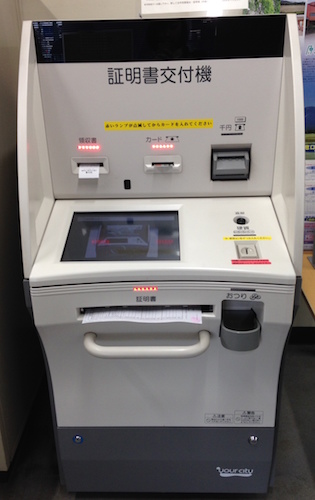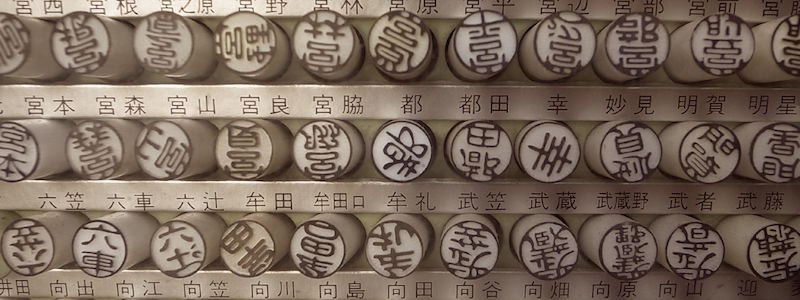Table of Contents
What is a hanko or inkan?
Inkan (印鑑, personal seal) is a seal stamp of an individual or an organization’s name that is used in place of a signature on documents in Japan. Hanko (判子) is the physical object pressed on the paper to create the seal. They are made of hard materials such as plastic, wood, or ivory, not rubber.Where can I get an inkan?
Cheap, mass-produced inkan of common Japanese last names are available at 100-yen stores and are used for convenience. For official purposes or for foreigners without a Japanese name, personalized or hand-made inkan can be made at specialty stores. Depending on the material used, the price of an inkan can range from 1,000 yen to over 10,000 yen. Though foreigners do not need inkan, they can be made as a unique Japanese souvenir and used as a name stamp.
When do I need an inkan?
Inkan may have different names depending on what they are used for, though in theory all three names could refer to the same seal.
In most situations in daily life, a signature written over the in (印, seal) on documents will suffice, and banks will accept a signature in place of an inkan when opening a bank account. Unless you are planning to live in Japan long-term and engage in major legal matters to transfer inheritance, purchase, transfer, or lease large items such as cars or real estate, or apply for insurance benefits, you will most likely not be required to have your own inkan.
Inkan Toroku: How do I register my inkan?
To register your inkan as jitsu-in, you must visit the local municipal office or City Hall. As a rule, the name on your inkan must match your legal name on your passport or residence card (in katakana, hiragana, or alphabet). You will not be able to register an inkan that uses kanji unless you have first registered the kanji as your official by-name (通称).
 Once the inkan is registered, you will receive a seal registration card (印鑑登録証) or citizen’s card (市民カード), which you can use to print various official documents at a discount using automated certificate printing machines located around the city. These documents include the inkan shomei (印鑑証明, seal registration certificates), jūminhyō (住民票, residency certificate), and documents certifying tax payment. Jitsu-in are equivalent to a person’s identity on official and important documents, and are difficult to replace. Precautions should be taken to avoid damaging or losing the seal. To discourage identity theft, use a custom-made inkan and avoid storing your jitsu-in and the citizen’s card in the same place.
Once the inkan is registered, you will receive a seal registration card (印鑑登録証) or citizen’s card (市民カード), which you can use to print various official documents at a discount using automated certificate printing machines located around the city. These documents include the inkan shomei (印鑑証明, seal registration certificates), jūminhyō (住民票, residency certificate), and documents certifying tax payment. Jitsu-in are equivalent to a person’s identity on official and important documents, and are difficult to replace. Precautions should be taken to avoid damaging or losing the seal. To discourage identity theft, use a custom-made inkan and avoid storing your jitsu-in and the citizen’s card in the same place.

